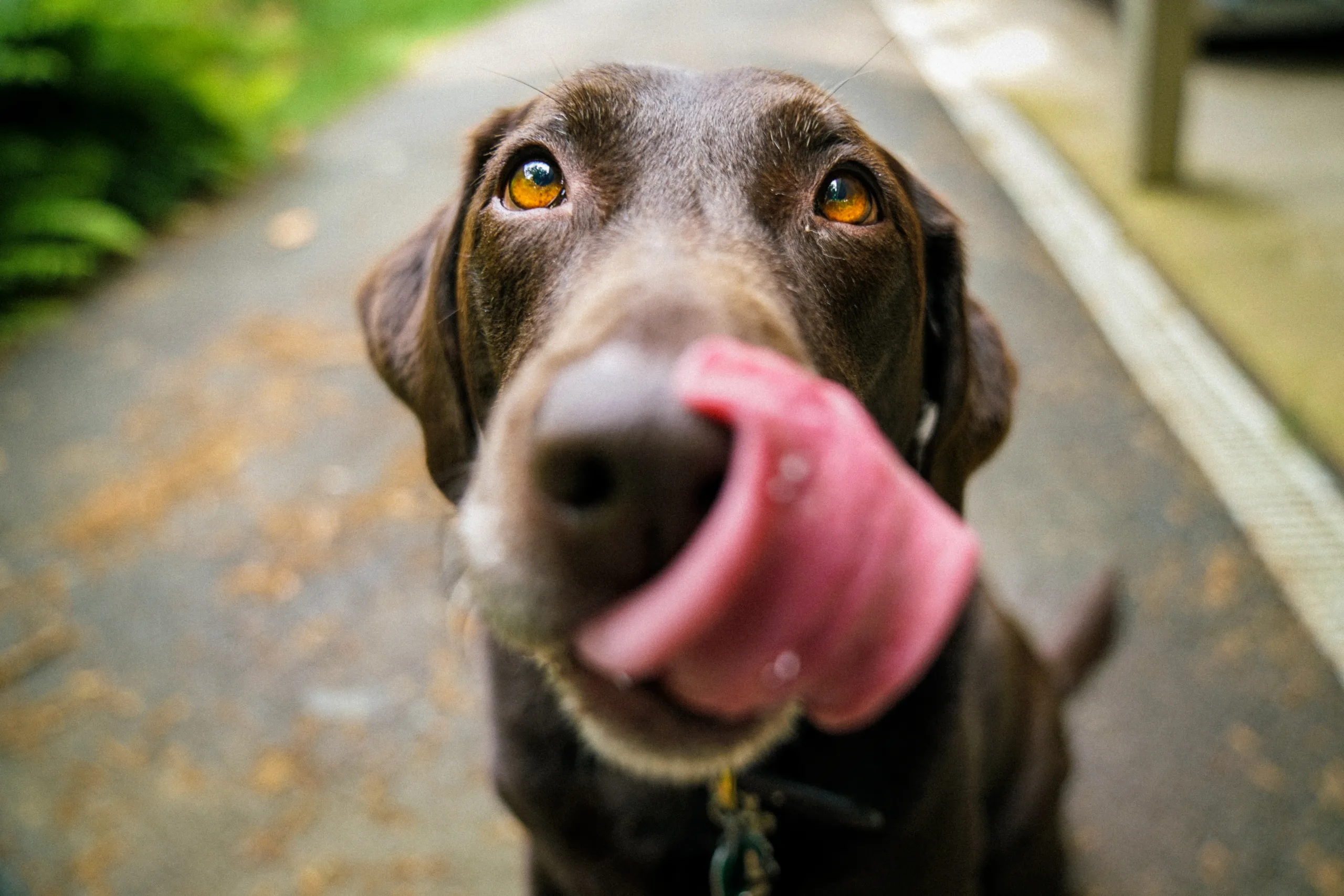Introduction
If you’ve ever given your furry friend a taste of peanut butter, you may have noticed their enthusiasm and excitement. Many dogs simply adore the creamy goodness of this popular spread. But why do dogs have such a fondness for it? In this article, we will delve into the reasons behind dogs’ love for peanut butter, explore whether it is safe for them to consume, and address some common concerns dog owners may have.
For more about dogs click here
The Irresistible Flavor of Peanut Butter
The Role of Taste Buds
Dogs have taste buds just like humans do, but their preferences and sensitivities differ. While they may not have as many taste buds as we do, dogs have a heightened sensitivity to certain flavors, particularly those that are rich and savory. Peanut butter, with its smooth texture and nutty taste, provides a delightful sensory experience for them.
Aromas and Scents
The aroma of peanut butter is another factor that contributes to its appeal for dogs. Dogs have an incredible sense of smell, and the enticing smell of peanut butter can trigger their interest and pleasure centers. The combination of taste and smell makes peanut butter an irresistible treat for our canine companions.
Is Peanut Butter Safe for Dogs?
While dogs may love the taste of peanut butter, it’s crucial to consider its safety and nutritional aspects before incorporating it into their diet. Here are some key points to keep in mind:
Nutritional Value
Peanut butter is generally safe for dogs in moderation. It is a good source of healthy fats, protein, and essential nutrients like vitamin E and niacin. However, it is important to choose natural peanut butter without added sugars, artificial sweeteners, or xylitol, as these can be harmful to dogs.
Calories and Portion Control
Peanut butter is calorie-dense, so it should be given to dogs in moderation to avoid weight gain and potential digestive issues. A small amount, such as a teaspoon or two, can be a suitable serving size depending on your dog’s size and overall calorie intake. Always consider your dog’s specific dietary needs and consult with a veterinarian if you have any concerns.
Allergies and Sensitivities
Just like humans, dogs can have allergies or sensitivities to certain foods, including peanuts. If your dog has not had peanut butter before, introduce it in small quantities and observe for any signs of an allergic reaction, such as itching, swelling, or gastrointestinal upset. If you suspect an allergy, discontinue use and consult with your veterinarian.
Dogs and the Joy of Peanut Butter
Sensory Stimulation and Enrichment
Peanut butter can provide dogs with sensory stimulation and mental enrichment. Smearing a small amount of peanut butter inside a treat-dispensing toy or using it as a training reward can engage their senses and provide mental stimulation, helping to alleviate boredom and anxiety.
Bonding and Positive Associations
Using peanut butter as a treat or reward during training sessions can strengthen the bond between you and your dog. Dogs often associate the taste and smell of peanut butter with positive experiences, making it an effective tool for training and reinforcing desired behaviors.
Oral Health Benefits
Some peanut butter brands contain xylitol, an artificial sweetener that is toxic to them and can lead to serious health issues. Always check the ingredient list and ensure that the peanut butter you offer to your dog does not contain xylitol. Natural peanut butter, on the other hand, may have oral health benefits. The act of licking peanut butter can stimulate saliva production, which can help with removing plaque and maintaining good oral hygiene.
FAQs
Q: Are there any alternatives to peanut butter for dogs?
A: Yes, there are several alternatives to peanut butter that dogs may enjoy, such as mashed bananas, pumpkin puree, or plain yogurt. Just make sure to check that these alternatives are safe and suitable for your dog’s specific dietary needs.
Q: Can peanut butter cause stomach upset in dogs?
A: In some cases, excessive consumption of peanut butter or a dog’s individual sensitivity to it may lead to gastrointestinal upset. It’s important to introduce peanut butter gradually and monitor your dog’s response. If digestive issues persist, consult with your veterinarian.
Q: Can I use peanut butter to administer medication to my dog?
A: Peanut butter can be a useful way to hide medication and make it more palatable for them. However, it’s important to check with your veterinarian to ensure that the medication can be safely administered with peanut butter and that it doesn’t interfere with the medication’s effectiveness.
Q: Can puppies have peanut butter?
A: Puppies can generally enjoy peanut butter in moderation, but it’s essential to consider their smaller size and adjust the serving accordingly. Additionally, it’s important to choose peanut butter without any additives that may be harmful to puppies.
Q: Is there a risk of choking on peanut butter for dogs?
A: It is generally safe for dogs, but it’s important to avoid giving them large amounts or allowing them to eat it directly from a jar. To prevent choking hazards, always provide peanut butter in a controlled manner, such as by spreading it on a treat or using it in interactive toys.
Conclusion
Dogs’ love for peanut butter can be attributed to its appealing taste, smell, and sensory experience. When offered in moderation and in its natural form, it can be a safe and enjoyable treat . However, it’s crucial to be mindful of any allergies, nutritional considerations, and the potential presence of harmful additives in certain brands. Always consult with your veterinarian if you have any concerns or questions about including peanut butter in your dog’s diet. Remember, moderation and responsible feeding practices are key to ensuring the well-being and happiness of your four-legged friend.
Click for more
